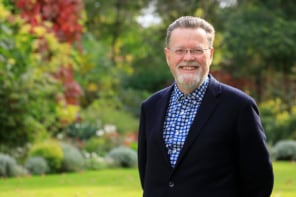Caitlin Duffy says it is more critical than ever to consider your next career move despite the challenges posed by the COVID-19 pandemic

We’ve all spent a lot more time at home recently following the COVID-19 pandemic. During lockdown you may have obtained new skills or attended online meetings wearing pyjamas beneath a blouse or shirt. The unprecedented nature of COVID-19 has seen most labs close, leading to more time with the family, the ability to easily flex hours, no commuting as well as instant access to the kitchen and the kettle. Enthusiasm for this new way of working was initially high, but once the difficulty of balancing 24-hour childcare, fighting constant distractions and maintaining a healthy work–life balance became apparent the novelty soon wore off.
For many PhD students, postdocs and academics, the lack of face-to-face communication and the limited access to facilities are an inconvenience. Online meetings are less productive and there’s the constant challenge of engaging a class of students on Zoom when they are just names on a screen. Those of us who are settled are more fortunate, but for graduates, PhD students and postdocs, the prospect of a career “next step” seems more precarious and unsettling than ever.
Before the pandemic, searching for a new position usually involved an in-person meeting with prospective colleagues and seeing workplaces and labs. Travel restrictions have taken this to the virtual world but despite tremendous effort it is not the same. Given the logistical challenges of moving abroad, staying put during a global pandemic might seem the wisest and most attractive option. Yet now could be the perfect moment to look beyond current travel restrictions and quarantines and take advantage of the many positives of working abroad. After all, fortune favours the bold.
The global village
Perhaps the most beneficial part of moving to a new job is making new collaborations and networking. Working alongside active and renowned researchers increases your influence in the field, builds your reputation and exposes you to the heated arguments and bold ideas at the forefront of academic debates. Whether right or wrong, progression in your academic career can very much depend on who you know and with whom you have published. Sometimes funding is only available elsewhere or perhaps the pay and workers’ rights are preferable in another country. In certain European nations, for example, a PhD is considered a job with a contract laying out employee benefits and rights, paid holiday hours, the expected teaching requirements and a fixed salary with bonuses. Financial security and written employee protection are no longer an unpredictability, but a given.
Heading to pastures new will also expose you to a new environment. No two labs are the same and, by switching, scientists develop their own experience-based methods and means of thinking. Perhaps after working in a single-group lab for a few years you might discover that a multi-group lab with a diverse range of experiments and experimentalists is more desirable. Perhaps the new lab accepts external users, allowing interests to develop in the science and materials being studied outside your main expertise. By changing labs, you can leave your mark and take away knowledge with you for future endeavours.
Moving to a new country is daunting and potentially accompanied by language barriers and culture shocks. Deviating from your own comfort zone, you’ll experience new geographical landscapes, cities, people, food and an alternative way of living. In the modern world, the ability to up sticks to another country generates a greater respect and understanding of the world we live in. Many collaborators have made similar choices leading to Christian holidays celebrated together with Thanksgiving, Eid, Russian New Year or Cinco de Mayo – all being a reason to share laughter and time with each other (I’ve thought of teaching ceilidh dances and toasting a haggis on Burns’ Night, but drew the line at reciting Scottish poems to students).
For those chasing the academic dream, the concept of a stable living situation can feel somewhat far-fetched. Maybe there seems little reason to buy a house because dealing with short-term rentals in foreign countries requires less commitment. Feeling “at home”, however, does not need to correlate with owning a piece of land. For some it can simply mean being comfortable in a work environment or getting by easily while out shopping or using public transport. For others, it could be joining a choir, signing up to a sports team, making friends, finding a local café (or wine shop), or simply feeling at peace. Although the transition requires effort in the initial stages, the rewards outweigh the fears.
Science is a global and collaborative endeavour and while conferences and meetings may have gone online for the foreseeable future, information and expertise can still physically travel. Tempting though it may be to stay put during these testing times, keeping an open mind and looking outwards could be worth the risk. If there is an exciting opportunity abroad, overlook the barriers and complications of COVID-19 and pursue it. Don’t reject today what you would regret tomorrow.


